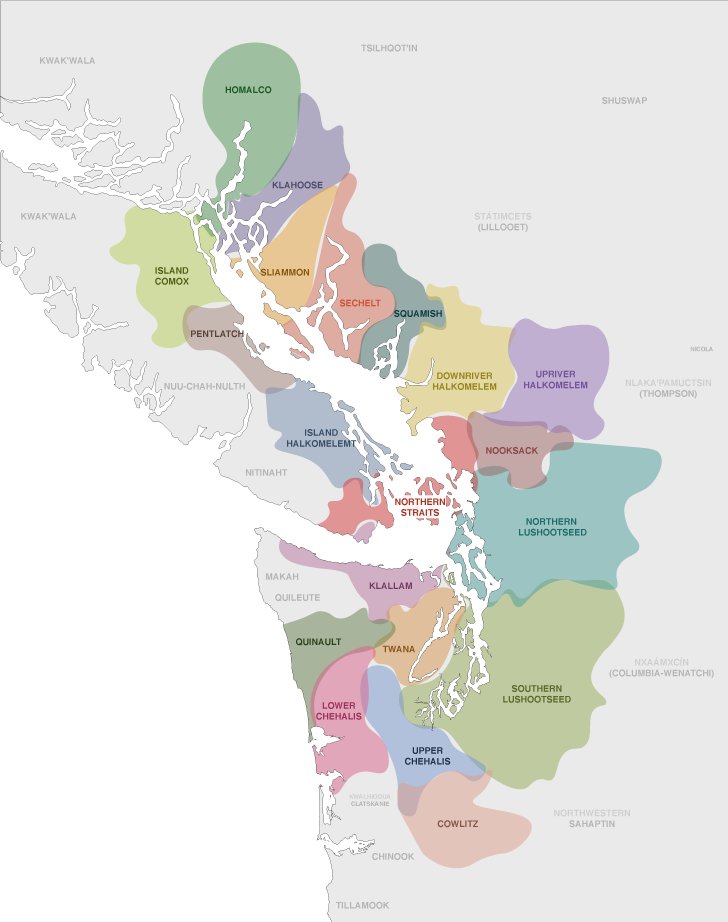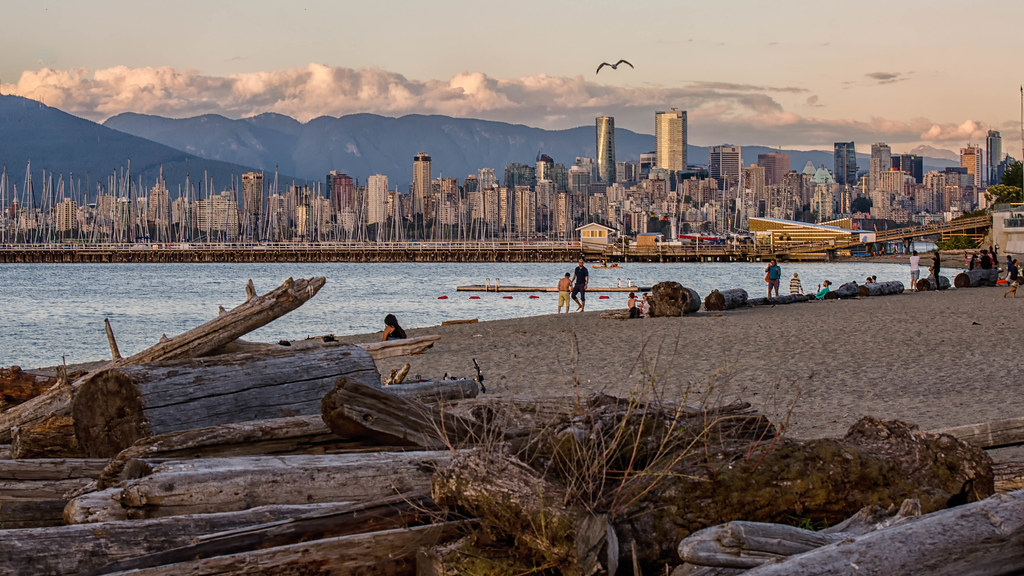Who are the "Coast Salish"?
Here’s a thread.
Here’s a thread.
"Coast Salish" is an anthropologist & linguistic designation for a collection of Indigenous peoples who speak a language that is connected to the "Coast Salish" language family.
Think Romance languages with Portuguese, Spanish, French, Italian, etc.
Think Romance languages with Portuguese, Spanish, French, Italian, etc.
There are twelve languages in our language family with dialects and language varients within those languages.
Our peoples, territories, and languages spread across a distance of around 400km from Seymour Narrows to Puget Sound
Our peoples, territories, and languages spread across a distance of around 400km from Seymour Narrows to Puget Sound
Here is a map of a number of Coast Salish languages and dialects.
(Source: Wikipedia at https://en.wikipedia.org/wiki/Coast_Salish_languages)">https://en.wikipedia.org/wiki/Coas...
(Source: Wikipedia at https://en.wikipedia.org/wiki/Coast_Salish_languages)">https://en.wikipedia.org/wiki/Coas...
We are linguistically and culturally distinct but related to our neighbours in the interior lands.
At a linguistic level, there are unique traits found in all Coast Salish languages but not found in any Interior Salish languages.
At a linguistic level, there are unique traits found in all Coast Salish languages but not found in any Interior Salish languages.
We are also separate from our neighbours to the north and west that are part of the Wakashan language family.
As different as Japanese and Greek.
As different as Japanese and Greek.
"Coast Salish territory" doesn& #39;t really exist.
Coast Salish is not a monolith. We& #39;re a mosaic, and being Coast Salish from one territory doesn& #39;t give you rights and title to another people& #39;s territory, even if you& #39;re both Coast Salish.
Coast Salish is not a monolith. We& #39;re a mosaic, and being Coast Salish from one territory doesn& #39;t give you rights and title to another people& #39;s territory, even if you& #39;re both Coast Salish.
In historical times, identity was rooted in a variety of ancestry, the place of residence, or spoken language.
If you lived in a Sḵwx̱wú7mesh-speaking community, you were likely Sḵwx̱wú7mesh or became Sḵwx̱wú7mesh through acculturation.
If you lived in a Sḵwx̱wú7mesh-speaking community, you were likely Sḵwx̱wú7mesh or became Sḵwx̱wú7mesh through acculturation.
Intermarriage was common across linguistic communities and served to create diplomatic relations, access to subsistence food sources, and fostering of healthy families.
This is how words, terms, concepts would travel across territories with versions of the same word showing up.
This is how words, terms, concepts would travel across territories with versions of the same word showing up.
In special circumstances, multiple Coast Salish communities across various linguistic boundaries would come together for a common purpose.
This could be celebrations after the harvest season for what became known as potlatches, or it included physical defence to enemy raids.
This could be celebrations after the harvest season for what became known as potlatches, or it included physical defence to enemy raids.
Iy̓álmexw / ʔəy̓alməxʷ (Jericho Beach) in Vancouver was a village with large houses to accommodate thousands of guests in the 1860s. Large potlatches from multiple Coast Salish (and non-Coast Salish) communities attended for weeks during August-September months.
As of 2013, there were estimated to be 56,590 Coast Salish people, made up of 28,406 Status Indians registered to Coast Salish First Nations in British Columbia, and 28,284 enrolled members of Coast Salish Tribes in Washington state.
We don’t have a collective term in our languages for ourselves. We still use Coast Salish because it’s the most known and used, but we have a way for how we identify ourselves in each of our languages.

 Read on Twitter
Read on Twitter



